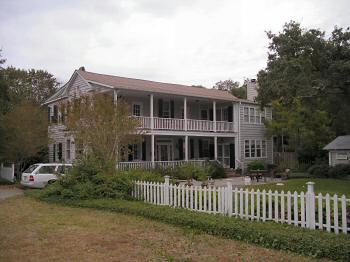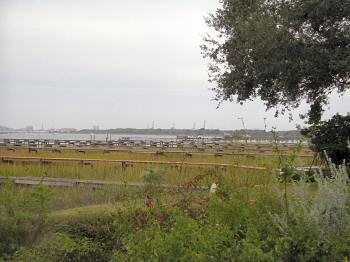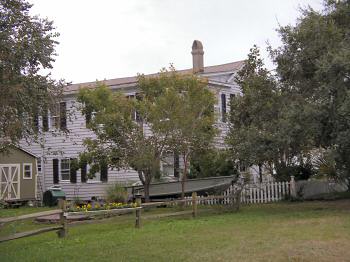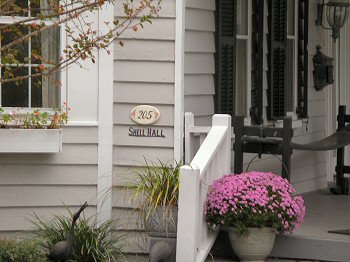|
(October 2006)
Front
General Beauregard had serious reservations about the cause of the sinking
and gave orders that the Hunley was to be operated only on the surface for
the time being. This time he appointed Lieutenants George Dixon and William
Alexander to command the ill-fated vessel. Despite the General orders
Lieutenant Dixon took the Hunley down and successfully resurfaced
two-and-one-half hours later. Nautical archaeologist, Christopher Amer
explains "During months of practice the crew each evening would walk from
their house in Mount Pleasant (it is still there), past Ft. Moultrie to
Battery Marshall, the Hunley's base located at the north end of Sullivan's
Island, and conduct "dry runs" going offshore as much as 7 miles before
returning to base at dawn and walking back home for breakfast. Finally, on
the evening of February 17, 1864 everything was ready, and the vessel
attempted its first combat operation against an enemy vessel. The target was
the 1200-ton steam Housatonic |
|
(October 2006)
View from the front, looking toward Charleston Harbor.
Charleston can be seen in the left background
The crew of the confederate submarine, C.S.S. Hunley, commanded by Lt.
George Dixon, was temporarily quartered at Ronkins Long Room, 205 Ferry
Street in early 1864. The building, historically known as Shell Hall, on the
property of Charles Pinckney, was used during the Civil War as an armory and
barracks. Ferry boats ran from here to Charleston |



